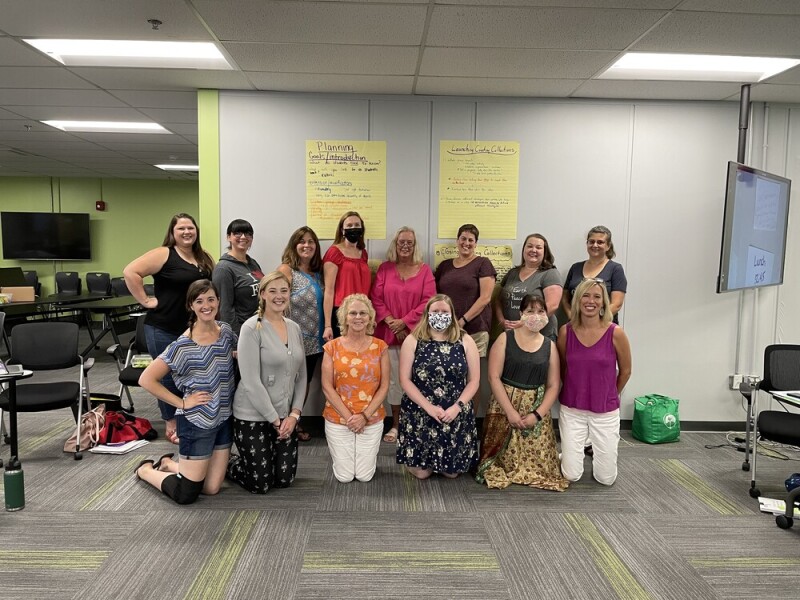Caption: Teachers who took part in professional development training aimed at helping to close learning gaps are, front row, from left: Emily Goldman (Lyndon Town School, Grades 3 and 4), Monica Dicks (Lyndon Town School, Grade K), Sandy Alaimo (East Rochester School, Special Education), Emily Lauer William Allen School, Grade 5), Holly Bogardus (McClelland School, Special Education), Jessica Jeffers, OGAP Trainer from Alabama. Back row, from left: Katrina Locke (School Street School, Grade 4), Samantha Cohen (McClelland School, Special Education), Donna Campbell (Charlestown Primary School, Title 1 Math), Jill Berry (Lincoln Akerman School, Grade 2), Mary Durant (Lincoln Akerman School, SAU 21, K-6), Kim Barnham (East Rochester School, Special Education) Sarah Bean (Lyndon Town School, Grades 3&4), Tracy Hall (Acorn School, Pre-K and Grade K). (Photo Courtesy Rochester Public Schools)
ROCHESTER - Rochester Schools Superintendent Kyle Repucci announced on Friday that Rochester Public Schools partnered with the New Hampshire Learning Initiative and the Ongoing Assessment Project to provide teachers with training to help close learning gaps among the district's youngest students.
The professional development training was offered free to any New Hampshire educator thanks to a grant from the New Hampshire Department of Education.
Rochester Public Schools hosted 13 educators for a course on K-2 Additive Reasoning designed by the Ongoing Assessment Project -- an evidence-based formative assessment system that includes professional development resources and routines for teachers to continually adjust instruction to meet the diverse needs of K-6 math students.
Additive Reasoning focuses on basic math skills like addition and subtraction, number sense, and basic fact fluency.
The goals of the training were:
To help teachers develop a deeper understanding of the mathematical content they teach
To introduce teachers to underlying research on student learning
To explore and model effective instructional strategies
To provide practice in using OGAP tools and routines to continually monitor and respond to student thinking
To actively engage teachers in problem-solving, analyzing student work, and small and whole group discussions
"We chose to offer this professional development course because of the impacts of the learning gaps on our youngest learners over the past year," Repucci said. "The pandemic has challenged both teachers and students, and we are committed to assisting our educators as they work to help students overcome the impacts of the pandemic on their learning."
Three virtual follow-up sessions are scheduled for September and October for teachers to review student work and discuss mathematics progress.
The New Hampshire Learning Initiative and Southern New Hampshire University partnered to offer participants six graduate credits for their participation in the training.













